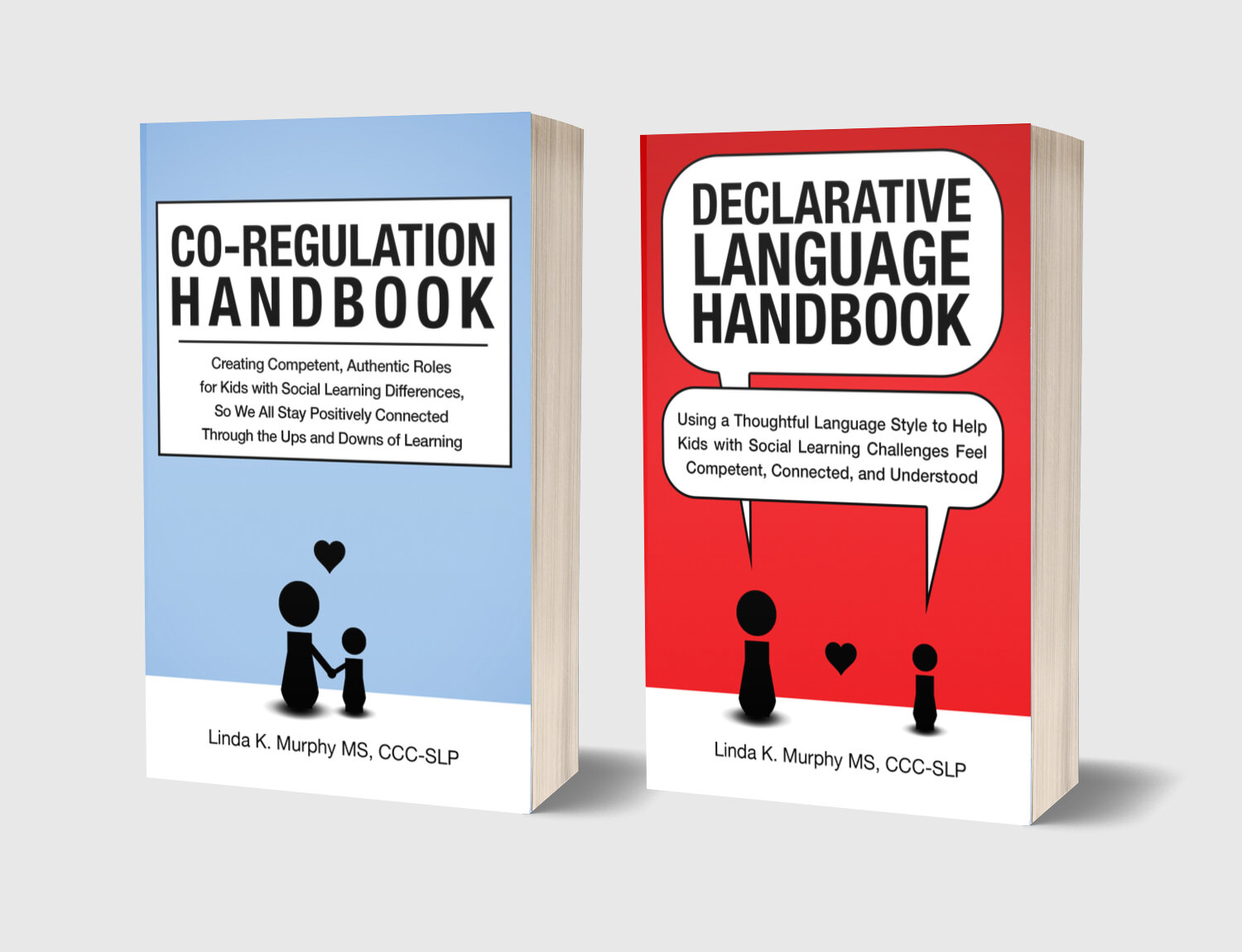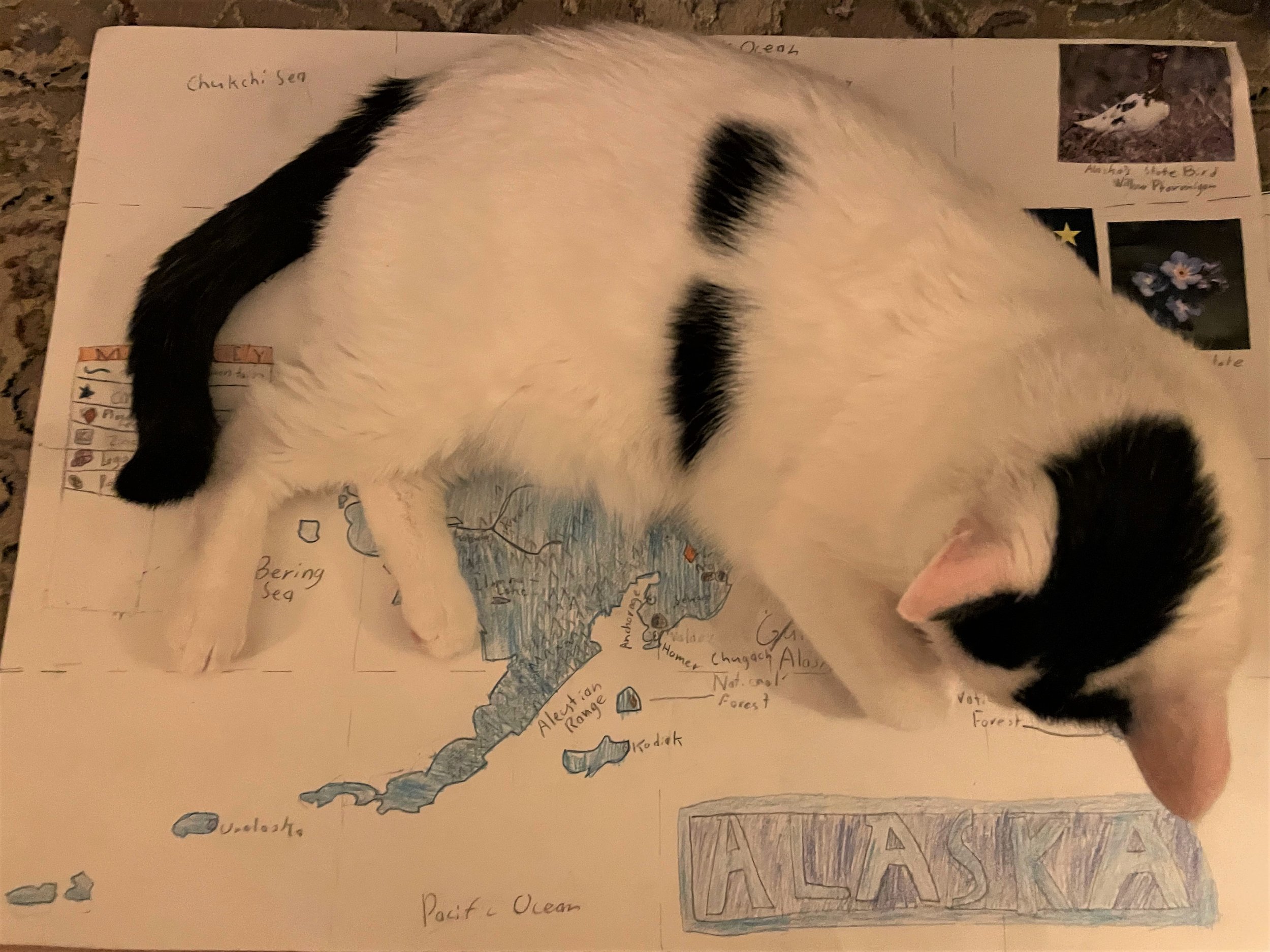Competent Roles and School Projects
My husband is generally a quiet person (unless you get to know him) and is more a man of action than words. One important trait that quieter folks tend to have, is that they are good listeners, and subsequently, learners. They might not have a long conversation with you about what they are hearing and learning, but you’ll see it at some point in their actions.
I have been talking about declarative language and co-regulation for a long time! And I can tell my husband is listening - and learning - through his actions. For example, he might say to the boys, “I notice you don’t have your gloves” or “it’s recycling night…” or even “we need a table clear-er.”
He also has become great at including them in his own to-do’s (yard work, snow shoveling, grocery shopping, cooking, assembling things, to name a few…), when he can offer them a competent role.
I noticed him recently create an impressive competent role for one of our sons and wanted to share it as an example of how to plug this into your own lives.
My 4th grader, Desmond, has been working on his “state project”. For this project, each student in the class chooses a state that they immerse themselves in and learn all they can. Desmond has chosen Alaska!
Part of the project involves drawing an enlarged map of the state. When my older son did this project a few years ago, he had Colorado, which is a rectangle, so I didn’t realize how complicated this part of the project could be! Alaska, with its intricate and detailed coastline is a different story.
Here is how my husband made this complex task manageable for Desmond by creating competent, authentic, and contingent roles (I talk about this process throughout Co-Regulation Handbook).
He took the real map of Alaska and divided it into 16 rectangles.
Then, he drew the same 16 rectangles on a large poster board…
…and guided Desmond to draw only one rectangle at a time, at his own pace.
And Desmond did! …A little at a time, over the course of a few days.
I was impressed with the results (and so was our cat, Snowy)!
Importantly, now our whole family has learned this strategy, and can use it the next time we need to draw a map or copy something more complicated. But it was important for my husband to slow down the process, assume this part of the task right now, so that Desmond could learn to use it on his own, in the future.
And that is one example of how competent, authentic, and contingent roles are created across a task you may need to tackle, and how it leads to increased independence over time.
It doesn’t have to be hard work; it just requires us to stop and think about how to approach the task with our individual learner in mind.
To recap:
Think about the task at hand.
Think about your child.
Think about how you could partner with your child in a meaningful way so that you both have competent, authentic, contingent roles within the task.
To be competent, your child’s role should be one that they can do on their own … with just a little bit of time, and/or a little bit of help.
You assume the rest (for now).
In this example, their competent, authentic, and contingent roles were:
Rob: The big picture viewer and the grid draw-er
Desmond: The Alaska draw-er, one box at a time
Do you have any school projects coming up where you can take a step back and create competent, authentic, contingent roles to support your child’s skill development and success? I’d love to hear all about it!
Have a great week!
Don’t forget to check out and sign up for the Decoding Behavior Summit, where I’ll be speaking about DL & CR. This FREE online event takes a humanistic perspective on behavior — you can honor a child’s neurodivergence and improve challenging behavior. Grab your free spot through this link!
If you like my Sunday Snippets of Support, you can receive them directly to your inbox here.






